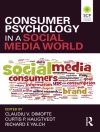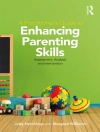Presenting an innovative framework for tailoring cognitive-behavioral interventions to each client’s needs, this accessible book is packed with practical pointers and sample dialogues. Step by step, the authors show how to collaborate with clients to develop and test conceptualizations that illuminate personal strengths as well as problems, and that deepen in explanatory power as treatment progresses. An extended case illustration demonstrates the three-stage conceptualization process over the entire course of therapy with a multiproblem client. The approach emphasizes building resilience and coping while decreasing psychological distress. Special features include self-assessment checklists and learning exercises to help therapists build their conceptualization skills.
Tabela de Conteúdo
1. The Procrustean Dilemma
2. The Case Conceptualization Crucible: A New Model
3. Two Heads Are Better Than One: Collaborative Empiricism
4. Incorporating Client Strengths and Building Resilience
5. “Can You Help Me?”: Descriptive Case Conceptualization
6. “Why Does This Keep Happening to Me?”: Cross-Sectional Explanatory Conceptualizations
7. “Does My Future Look Like My Past?”: Longitudinal Explanatory Conceptualizations
8. Learning and Teaching Case Conceptualization
9. Appraising the Model
Appendix. Aid to History Taking Form
Sobre o autor
Willem Kuyken, Ph D, is Professor of Clinical Psychology at the University of Exeter, United Kingdom; Cofounder of the Mood Disorders Centre; and a Fellow of the Academy of Cognitive Therapy. His primary research and clinical interests are case conceptualization and cognitive-behavioral approaches to depression, and he has published more than 50 articles and book chapters. Dr. Kuyken is a recipient of the May Davidson Award from the British Psychological Society.
Christine A. Padesky, Ph D, a clinical psychologist, is cofounder of the Center for Cognitive Therapy in Huntington Beach, California; codeveloper of Strengths-Based CBT; and coauthor of seven books, including the bestselling self-help resource Mind Over Mood, Second Edition. Dr. Padesky is a recipient of the Aaron T. Beck Award for significant and enduring contributions to the field of cognitive therapy from the Academy of Cognitive Therapy (now the Academy of Cognitive and Behavior Therapies; ACBT), the Distinguished Contribution to Psychology Award from the California Psychological Association, and the British Association for Behavioural and Cognitive Psychotherapies (BABCP) Award for Most Influential International CBT Therapist. She has been named a Distinguished Founding Fellow of the ACBT and an Honorary Fellow of the BABCP. The BABCP voted Mind Over Mood the most influential CBT book of all time. Dr. Padesky has taught workshops to more than 50, 000 therapists internationally and is renowned for her ability to integrate theory, empiricism, creativity, and practical therapy skills. She consults worldwide and develops audio and video training materials for therapists. Her free video training series for therapists is posted at www.youtube.com/Christine Padesky. Her websites are www.mindovermood.com (for the general public) and www.padesky.com (for mental health professionals).
Robert Dudley, Ph D, is a Consultant Clinical Psychologist for the Early Intervention in Psychosis Service at the Northumberland, Tyne, and Wear Mental Health NHS Trust, United Kingdom. He also serves on the staff of the Institute of Neuroscience at Newcastle University. Dr. Dudley’s primary clinical and research focus is the understanding and treatment of psychotic symptoms. As a clinician, trainer, and supervisor, he developed an interest in case conceptualization and has undertaken several research projects in this area.












